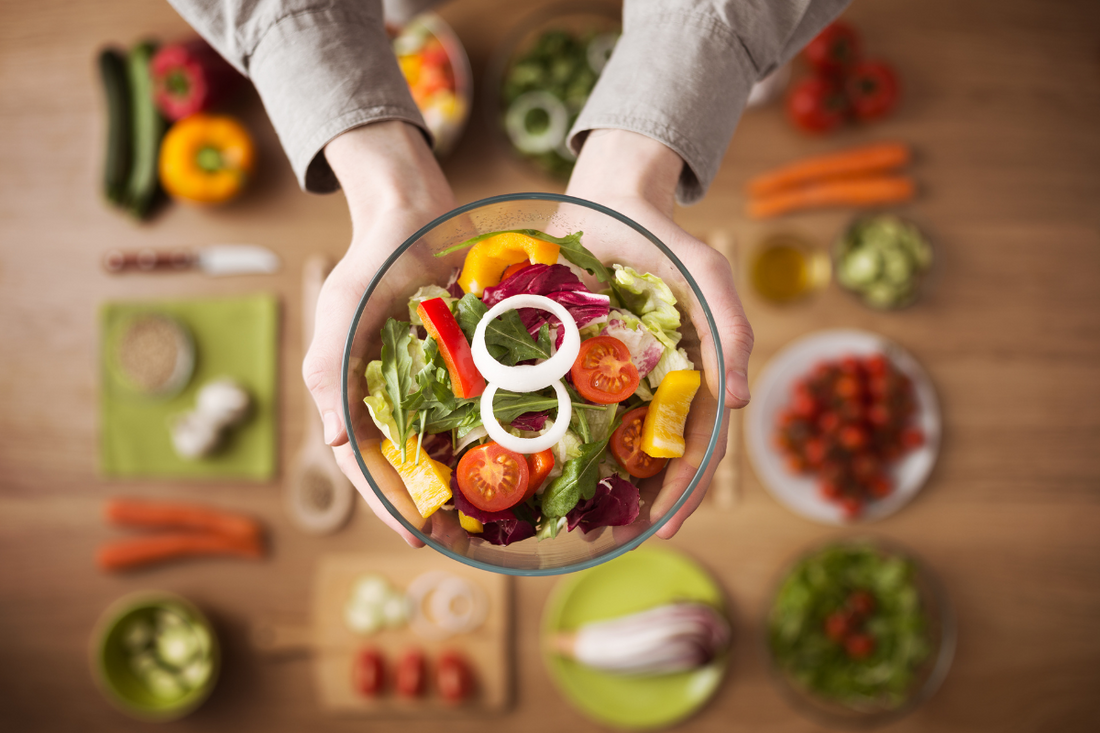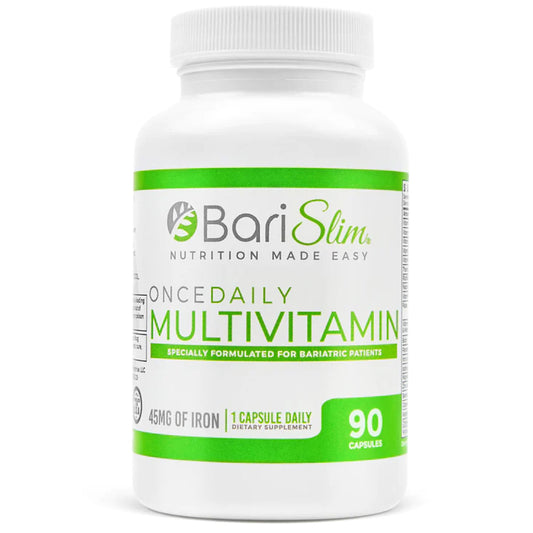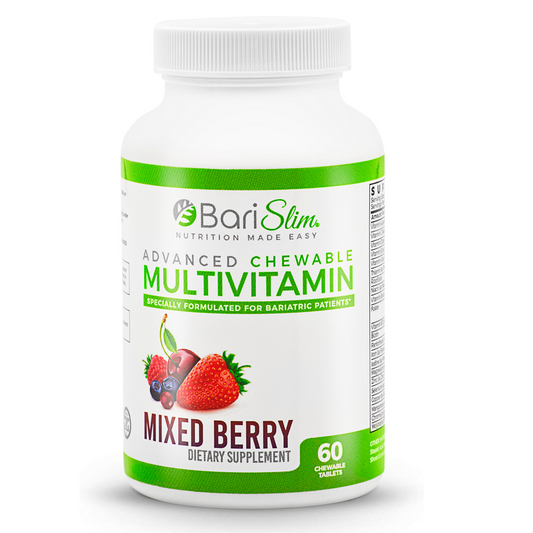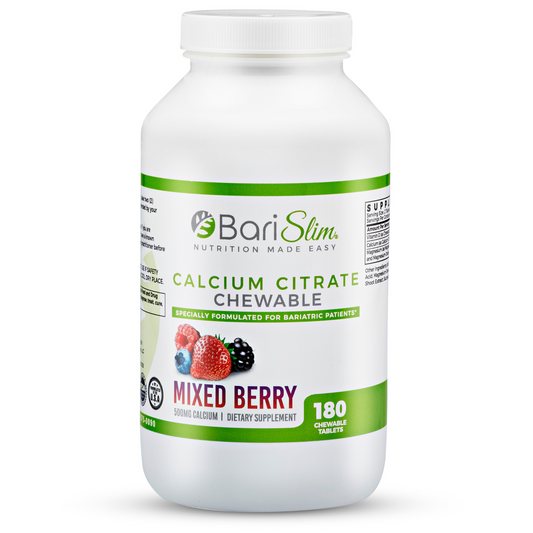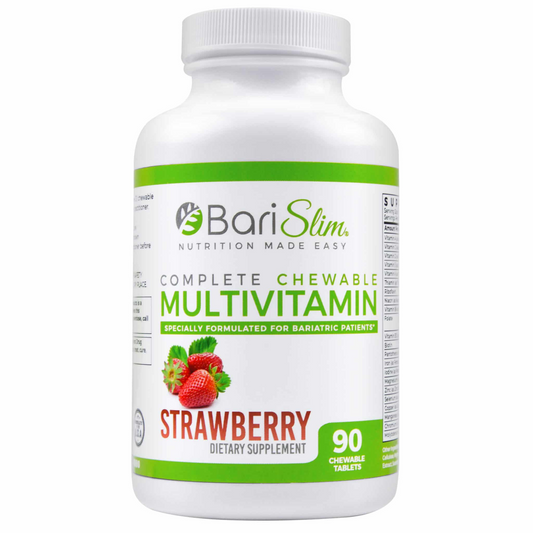Table of Contents
- Overview of Eating After Bariatric Surgery
- What Foods Can You Eat Immediately After Bariatric Surgery?
- What Foods to Avoid After Bariatric Surgery
- Stages of Eating After Bariatric Surgery
- Stage #1 - Liquid
- Stage #2 - Pureed
- Stage #3 - Soft
- Stage #4 - Maintenance
- Can You Ever Eat Normally After Bariatric Surgery?
Bariatric surgery is a significant medical intervention for individuals battling with obesity. After weight-loss surgery, your eating habits must change as your body's ability to handle food is vastly different. Understanding what "normal" eating means after the procedure is crucial for your health and weight management goals. It's important to note that "normal" will have a new definition post-surgery, as you will likely experience changes in your appetite, food tolerance, and nutritional requirements.
The concept of eating "normally" after such a surgical intervention is often interpreted as returning to pre-surgery eating patterns, but in this case, it's not the same. The changes made to your digestive system require a permanent adjustment in both the quality and quantity of food consumed. Initially, your diet will be limited to liquids and pureed foods, gradually incorporating more solid foods as you heal. This progression is essential to allow your body to adapt and heal properly.
It is possible to enjoy a variety of foods after the transitional period, albeit in much smaller portions than you might be accustomed to. Nutrient-dense foods will become a mainstay in your diet to prevent nutritional deficiencies. Mindful eating practices, such as chewing slowly and eating without distractions, will help you recognize the new signals your body sends when it is full. Adapting to these changes is not just about maintaining weight loss but also about nurturing your overall well-being for the long term.
Overview of Eating After Bariatric Surgery
After bariatric surgery, your stomach's size is significantly reduced, leading to a need for lifestyle adjustments, particularly in your eating habits. These changes are critical for both short-term recovery and long-term weight loss success.
Initially, you will adhere to a liquid diet, progressing to pureed foods and then to soft foods before you can resume a more regular diet. This gradual progression helps your smaller stomach adjust and ensures that you receive the nutrition you need without causing discomfort or complications.
Your meals should be small and frequent, focusing on high-protein, low-fat, and low-sugar options. It is vital to chew food thoroughly and eat slowly to aid digestion and avoid causing strain on your stomach. You'll be advised to:
- Avoid large meals that can stretch your stomach.
- Eliminate or limit foods and beverages high in calories but low in nutritional value.
Hydration is essential, but you should avoid drinking fluids 30 minutes before and after meals to prevent overfilling your stomach.
Lastly, it’s important to recognize that bariatric surgery is a tool to aid in weight loss, not a standalone solution. Long-term success will depend on your commitment to altering your eating habits permanently. Nutrition counseling and support groups are often helpful as you adapt to your new lifestyle post-surgery.
What Foods Can You Eat Immediately After Bariatric Surgery?

After bariatric surgery, your diet will change significantly to accommodate your smaller stomach pouch and to promote healing. You'll progress through several dietary stages, starting with liquids and eventually introducing solid foods, which we’ll cover in depth down below.
What Foods to Avoid After Bariatric Surgery
After bariatric surgery, your diet will change significantly. Certain foods can cause discomfort or complications such as nausea, vomiting, and diarrhea. It is crucial to adhere to dietary guidelines to ensure a smooth recovery and transition to healthier eating habits.
- Avoid vegetables like corn, celery, and cauliflower. These can be difficult to digest and may lead to discomfort.
- Foods such as rice and pasta can form pasty clumps in the stomach that are hard to pass through the narrowed digestive tract.
- Red meat can be hard to chew and digest properly. Opt for leaner, tender cuts of meat if included in the diet at all.
- It's best to stay away from popcorn due to its bulky nature and the potential to cause blockages in the new stomach pouch.
Snacks and Sweets - Indulging in snacks like **ice cream** and sweets or sugary drinks including **fruit juice** can lead to 'dumping syndrome,' causing rapid gastric emptying that triggers nausea, vomiting, and diarrhea.
- Foods like beans may be problematic soon after surgery because they can cause gas and bloating.
This list is not exhaustive, and it's important to adhere to the specific recommendations provided by your healthcare team. Your ability to tolerate foods will improve with time, but the focus should always be on a balanced diet that aids in weight management and overall health.
Stages of Eating After Bariatric Surgery

After bariatric surgery, you must adapt to a new way of eating. Your diet will progress through several stages as your body heals and adjusts to the changes.
Stage #1 - Liquid
During the initial stage, your stomach needs to heal. Stage 1 is usually the first week post-op. You'll consume a clear liquid diet that includes:
- Broth: Beef, chicken, or vegetable broth without solid pieces
- Juices: Diluted fruit juices without pulp or sugar
- Protein shakes: Clear protein shakes that provide essential nutrition
- Liquids: Water and caffeine-free herbal tea
Portion sizes should be small, typically 1-2 ounces, sipped slowly over a 30-minute period.
Stage #2 - Pureed
Once you can tolerate clear liquids, you'll move to a diet of pureed foods with a smooth, pudding-like texture. This usually lasts from week two to four, although could be longer depending on your body. This includes:
- Vegetables: Pureed vegetables with no chunks
- Proteins: Finely ground or blended lean proteins such as fish or chicken
- Eggs: Pureed soft-scrambled eggs
- Cottage Cheese and Yoghurt: Low-fat options, blended to a smooth consistency
At this stage, focus on small meals, with protein prioritized to aid in the healing process.
Important: Ensure no solid pieces are present to avoid complications.
Stage #3 - Soft
Two to three weeks after stage two, your diet now can include soft and easy-to-chew foods:
- Eggs: Soft-scrambled or poached
- Cottage Cheese and Yogurt: High in protein and calcium
- Tofu: Softened and well-mashed
- Vegetables: Soft-cooked vegetables like broccoli
- Cooked cereals: Plain oatmeal
- Fruit: Soft fruit without skin or seeds
Continue to consume several small meals throughout the day, paying attention to your appetite cues to avoid overeating.
Important: Chew food thoroughly.
Stage #4 - Maintenance
Approximately two months post-surgery, you will gradually transition to a maintenance diet consisting of solid foods. Although soft foods are still beneficial for you to eat.
- Lean Protein: Fish, poultry, lean beef, and pork
- Vegetables: Wide variety of cooked and raw vegetables
- Fresh Fruits: Introduce cautiously to monitor tolerance
- Solid Foods: Introduce gradually, chewing thoroughly
Your portion sizes will remain small, typically no more than a cup at a time. Balancing vitamins, minerals, and hydration is crucial for long-term eating habits.
Important: Introduce one new food at a time to monitor your body's reaction. Chew thoroughly and eat slowly.
Throughout all stages, you should:
- Stay hydrated; sip water throughout the day.
- Avoid carbonated beverages, high-calorie nutritional supplements, high-fat foods, and high-sugar foods.
- Introduce new foods gradually to monitor tolerance.
- Take vitamin and mineral supplements if recommended by your healthcare provider.
Can You Ever Eat Normally After Bariatric Surgery?
While you will go through stages to get to eat normally after bariatric surgery, you still will have to limit portion sizes and eat smaller meals.



